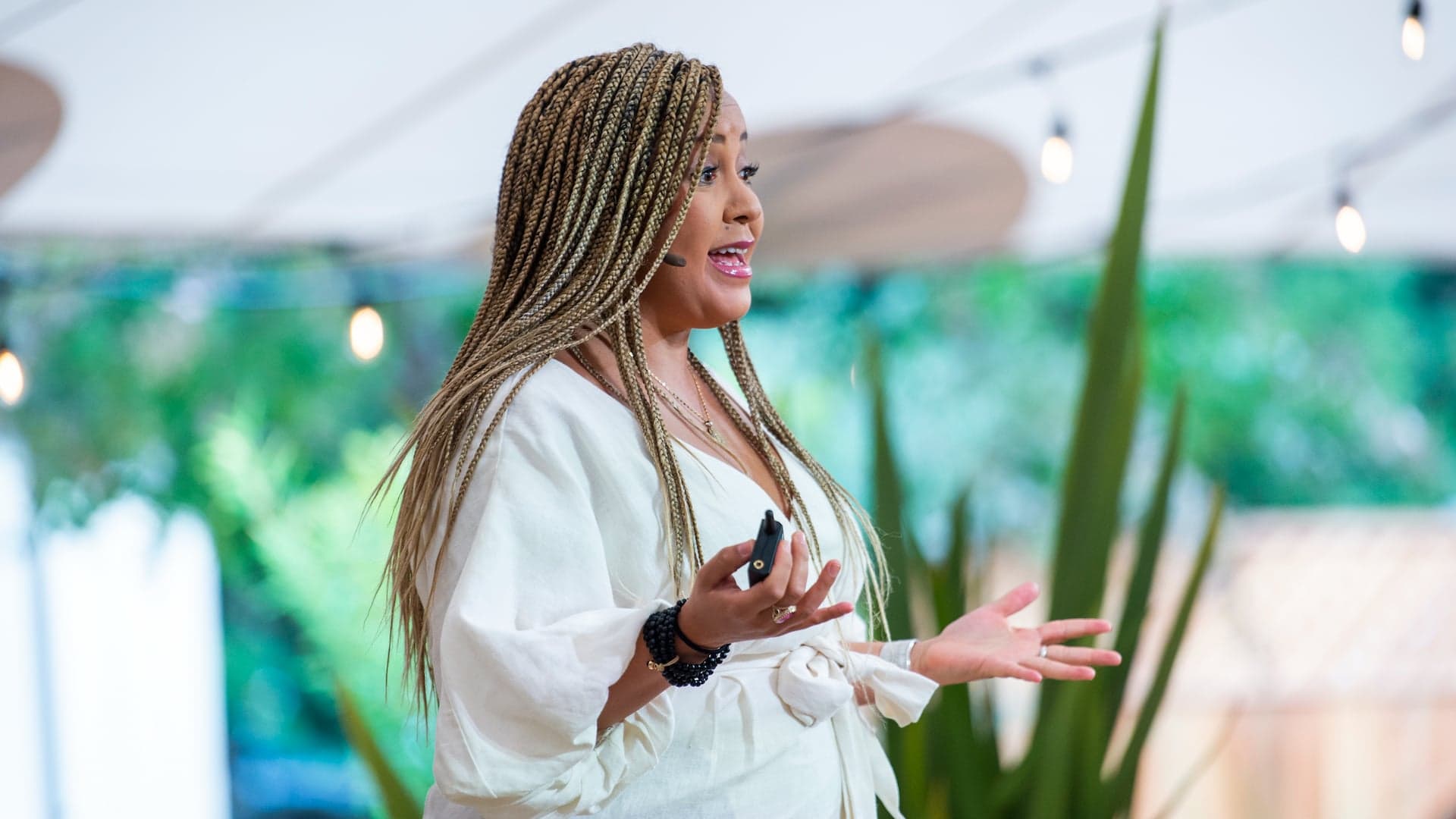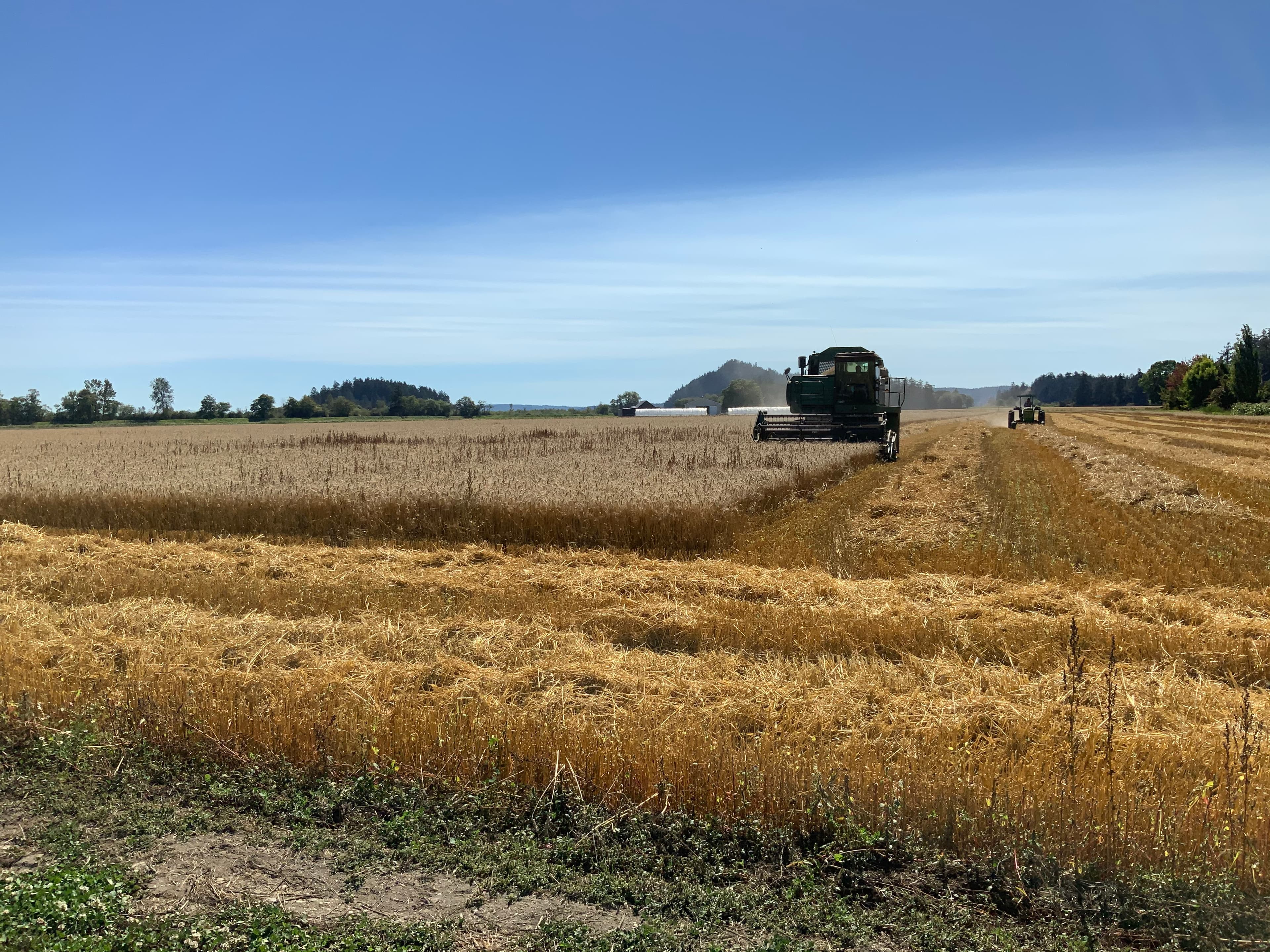The climate-friendly future of food
In 2019, Julia Collins found herself obsessed with a question. “I wanted to understand the total carbon footprint of a box of crackers,” she says.
And she meant everything: What it took to grow and harvest the wheat; how much carbon it took to ship it to a factory to be turned into crackers; the environmental footprint of the packaging; the emissions it took to get those boxes into stores. All of it.
Collins discovered that there weren’t great options for getting a reliable, affordable analysis of the carbon involved in cracker-making. “Being a tech nerd, I thought there must be some cloud solution or software I could use. But there wasn't,” she says. “I wanted to understand where my emissions were coming from, how to reduce them, how to source high-quality carbon offsets. And it was hard, hard, hard.”
An Emerson Collective Dial Fellow, Collins had spent her career at the intersection of food and technology—from working with fine-dining restaurants in NYC to building brands like Mexicue Restaurant and Murray’s Cheese Bar to moving to the Bay Area and launching Zume Pizza, where she became the first Black woman to found a company valued at more than $1 billion. So after having her first child and feeling the pressing need to do something about climate change, her idea to start a climate-friendly snack food brand sounded like a no-brainer.
But this task proved shockingly difficult. “The brand, the product, the fundraising, the market—of course those things were challenging, but they were known unknowns,” says Collins. “The hardest piece was making it actually climate-friendly.”
She quickly realized this wasn’t just a problem for her. It was a problem for the world. “If it's this difficult for me to find the solutions I need as a company whose sole reason for being is to be climate friendly,” she says, “what about the behemoth companies who are already in operation? How can we expect them to change?”
The solution wasn’t to build just one company. Collins decided to build two: Moonshot, which would specialize in carbon neutral crackers; and Planet FWD, which would build easy-to-use software to help food companies understand their climate impact and make actionable plans to improve it.

Companies that make consumer packaged goods—like food manufacturers and household good brands—are increasingly interested in lowering their environmental impact. Consumers, particularly younger consumers, are highly attuned to this, as are investors. At the same time, there’s increased regulatory pressure from initiatives like the SEC’s new climate-related disclosure requirements. “This is motivating the Walmarts and PepsiCos of the world, all the way down to the Moonshot Snacks of the world,” says Collins.
More and more companies are making net-zero pledges. But Collins stresses that there’s a big difference between making a pledge and enacting a plan to meet it.
Planet FWD helps companies take real and meaningful action toward their goals. They use a process called Life Cycle Analysis to show companies the full carbon footprint of their products, from the moment materials are planted in the ground until the product is disposed of. “Planet FWD is able to leverage automation and software, so we can do it better than ever before,” Collins says.
Traditionally, companies have used baseline measurement tools to estimate a product’s footprint. These tools tally up the impact of individual raw materials, but the numbers are based on averages, and the totals end up being rough. To get a more accurate picture, manufacturers could hire carbon accounting consultants to go more granular, but Collins estimates the cost at $14,000 to $20,000 per product. “That's not so bad if you only have a few products,” Collins says, “but what if you're Unilever and you have hundreds of thousands of products? Even for a company with seemingly infinite resources, that puts the work out of reach.” And the consulting process is often slow, taking six months or more.
Julia Collins“We want to catalyze a community of climate warriors within these massive global companies.”
Planet FWD is automating the work consultants do. It has the largest database available for agricultural life cycle analysis, allowing it to give more precise, granular measurements quickly. When it comes to a specific wheat, for example, it doesn't need to start from scratch in modeling production—in their database, they’ve already modeled dozens (and counting) of wheat production systems. “The USDA publishes a canonical list of every single ingredient that’s in every product on the shelf,” says Collins. “Our vision is to have modeled every single one of those ingredients.” And Planet FWD is often able to create results in hours, not months.
A new company, PlanetFWD got a big jumpstart on this by acquiring CleanMetrics 2.0, which has been working on this problem for 15 years. “The person who built it is now our CTO,” says Collins. And of Planet FWD’s 22 current employees, eight of them are climate scientists, adding to and refining the dataset.
When Planet FWD works with a company, it performs life-cycle analysis on specific products. It digs deeper, helping companies understand their full emissions picture—from both direct and indirect sources. From there, its climate scientists look at hotspots across materials, packaging, processing, transportation and operations, and identify the best opportunities for emissions reductions—maybe sourcing a corn with a smaller carbon footprint, switching to energy efficient light bulbs in a manufacturing plant, or lightweighting the plastic in their packaging. In this way, Planet FWD helps companies build a tailored emission-reduction plan, giving them data to prioritize high-impact actions and helping them plan out their timeline. And after they commit to reducing their footprint over time, Planet FWD helps them source high-quality offsets if they want to achieve carbon neutrality.
Sustainability officers, product teams, and procurement managers all get access to the Planet FWD platform. There, they can measure their improvement on the path to net zero, build simulations around new products and create reports to share with investors, retailers, customers and other teams.
Planet FWD also fosters relationships with regenerative farmers, not just recommending their ingredients to other companies — but also using them in Moonshot Snacks. “Part of what makes Moonshot crackers so tasty is the fact that we're using wheat that's grown so thoughtfully,” says Collins.
While she was waist-deep in her carbon-neutral snack research, Collins and her team had an idea. Instead of coming up with a recipe, then going out to suppliers to see who could fill the product spec, they decided to flip the model. “We went to suppliers first and said, ‘What would you want to grow to maximize the regenerative potential of your farm? Or what are you already growing to promote regenerative potential, where you just need a buyer?"
This brought her to Hedlin’s Family Farm in Washington State, a farm growing beautiful regenerative wheat it had been selling on the conventional market. Moonshot paid them a better price and never looked back. “Nutrient dense wheat is literally tastier,” she says.
Now, says Collins, Moonshot is looking to create new treats. “We are really excited about alternative grains—buckwheat, sorghum, rye, teff,” she says. “A ludicrously high percentage of human calories comes from corn, wheat, and soy. One of the best things we can do is diversify our grains.”
These endeavors are already having an impact. Moonshot Snacks are available in 3,200 stores, including Target and Whole Foods, with plans for expansion. And Planet FWD’s technology is now in use by 50 brands, from Just Salad restaurants and Blue Apron meal kits to Pangaia snack bars and Numi teas.
Food systems are responsible for one-third of global greenhouse emissions. So this work is, clearly, vital. And Collins’ long term vision is even bigger. She wants to start a movement toward climate-friendly products in food, fashion, beauty, home goods, and more.
“We want to catalyze a community of climate warriors within these massive global companies,” says Collins. “What we really hope for Planet FWD is that we can look back and say that we were successful in helping every consumer company achieve net zero.”

